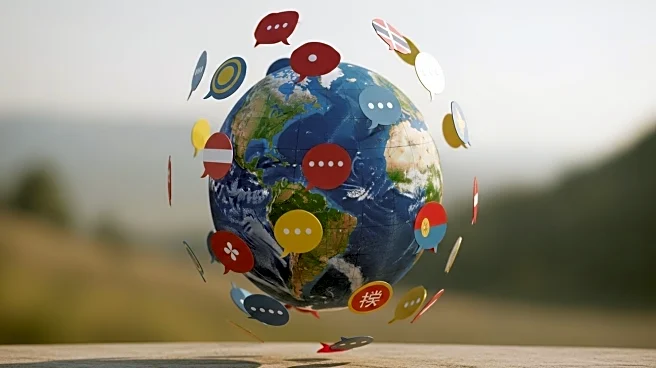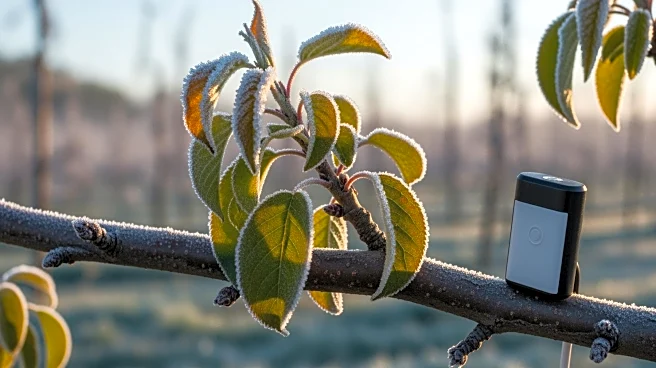What's Happening?
Recent discussions have highlighted the significant impact of language barriers on climate communication, particularly affecting immigrant communities and non-English speakers. Despite the global nature of climate change, much of the discourse, including scientific publications and policy discussions, is conducted in English. This creates a divide where non-English speaking communities, often those most affected by climate change, are excluded from critical conversations and decision-making processes. For instance, during the Los Angeles wildfires, communities with limited English proficiency faced challenges in understanding alerts and information. Experts argue that this exclusion prevents the sharing of indigenous and local knowledge, which could contribute to effective climate solutions. Organizations like Climate Cardinals are working to address these barriers by promoting accessible climate communication.
Why It's Important?
The exclusion of non-English speaking communities from climate discussions has significant implications for global climate action. These communities often possess unique knowledge and experience that could enhance climate resilience and adaptation strategies. However, the dominance of English in climate discourse limits their participation and contribution. This linguistic barrier not only affects immigrant communities in English-speaking countries but also rural populations in the Global South. As climate change continues to impact diverse populations, ensuring inclusive communication is crucial for equitable and effective climate action. Addressing these barriers could empower vulnerable communities, enhance global collaboration, and lead to more comprehensive climate solutions.
What's Next?
Efforts to improve language accessibility in climate communication are gaining traction. Organizations and experts are advocating for the inclusion of diverse voices in climate discussions, emphasizing the need for translations and culturally relevant communication strategies. Climate Cardinals, for example, is empowering local chapters worldwide to carry out localized climate action and improve adaptation and resiliency. As awareness of these barriers grows, there may be increased pressure on policymakers and climate communicators to ensure that all communities have access to vital information and can participate in climate solutions. This could lead to more inclusive policies and practices that recognize and integrate indigenous and local knowledge.
Beyond the Headlines
The linguistic divide in climate communication reflects broader issues of inequality and access to information. It highlights the need for systemic changes in how climate knowledge is disseminated and shared. By addressing these barriers, there is potential to shift the narrative from elite circles to a more inclusive dialogue that values diverse perspectives. This could foster greater understanding and collaboration across cultures, ultimately leading to more effective and sustainable climate action. Additionally, it underscores the importance of recognizing and valuing indigenous knowledge, which is often overlooked in mainstream climate discourse.









